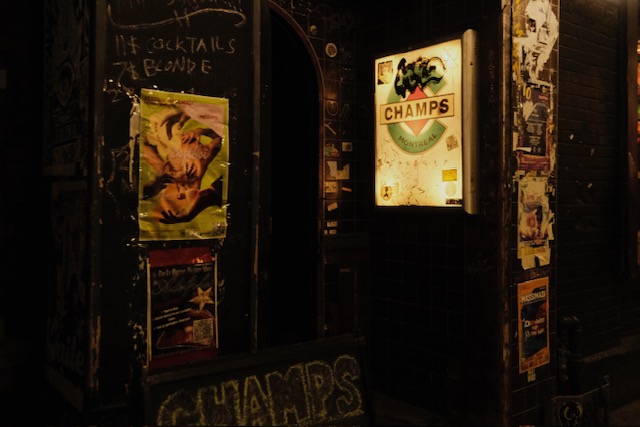Content warning: Sexual violence
You’re 18, sitting in your dorm on your first Friday night in Montreal. Syllabus week was daunting, and you’ve met what feels like a million people. Your minifridge is stocked with your first legal Société des alcools du Québec (SAQ) purchases. What do you do? Head to Café Campus with new friends.
Clubbing culture at McGill is strong. The unofficial McGill slogan, Work Hard, Play Hard, rings true for many who enjoy drinking, dancing, and late nights out. But what does clubbing really feel like for those immersed in the culture?
Despite its crowded nature, clubbing can be an incredibly personal experience. A night out can be tailored to match your every preference. The genre of music, type of people, and style of dress vary greatly among the city’s nightlife institutions, allowing eager students to search for their “Goldilocks” option—whatever feels just right. Whether you treat the club as an arena to meet new people, or as a space to release stress with your best friends, it can act as an exodus of the week’s burdens.
In an interview with The Tribune, Sahar Jafferbhoy, U3 Arts, expressed that clubbing fervour is most prominent among first-year students.
“I think it’s the newfound freedom. You’re 18, you don’t really go [out] before [starting university], and you’re meeting all these new people. You’re wanting to do all these new experiences with these new people you’re meeting.”
For some, especially women and other visible minorities, safety concerns cannot be ignored when planning or partaking in a night out at the clubs. According to Statistics Canada, one in three women experienced unwanted sexual behaviour in public in 2018. Furthermore, the sexual expectations that hook-up culture places on women, combined with intoxication from substance use, can pose serious safety concerns for women on a night out.
Susanna Nowak, U2 Education, explained to The Tribune, “People know what is [appropriate], and some people just don’t care to follow social etiquette anymore. It becomes really awkward when you’re telling people multiple times, ‘Hey. What are you doing? That’s not okay.’”
Jafferbhoy explained further that she always carries a rape alarm when she goes to clubs. “I would never go anywhere in the club on my own. Even to the bathroom, I’d go with the other girls.”
Some women feel safer when they go out with guy friends, since they feel that their presence offers some protection against unfamiliar men. Noemie Bisaillon, U2 Education, expressed that experience: “[I feel safer] If there are a few guys in the group, just ’cause you kind of feel like men are more likely to listen to other men.”
While some students go to the club looking for romantic partners, this isn’t everyone’s prerogative. To make clubbing safer and more enjoyable for everyone, we must recognize the necessity of clear and enthusiastic consent. After all, we should never assume the intentions or desires of anyone, especially strangers.
Deniz Tarman, U1 Engineering says, “I think [clubbing] is pretty fantastic. With all the problems it has, I think [Montreal] is a great clubbing city. I think issues regarding safety and violence are a general humanity issue, and dare I say a general man issue.”
Despite the risks, the clubs are full and many women still find the activity fun and enjoyable. “I love the vibes. I love the environment, the atmosphere. Everyone’s always in a good mood. I love a wee boogie, I love a wee dance. I love going with my friends,” adds Jafferbhoy.









